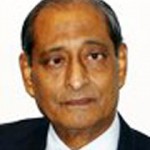April 22, 2015
Dear Friends,
Subject: Maria On Hindu Dharma 
Just when we were wondering when shall we get Maria’s next post, here comes it in the shape of Questions and Answers. The questions were asked by Aditya Sharma (AS).
Friends, while you may like to go through the entire piece of highly interesting and absorbing interest, in her blog (https://mariawirthblog.wordpress.com/2015/04/21/answering-some-questions/), we share with you here some excerpts from that:
· Pagan traditions in Europe cannot be compared to Hindu tradition. When Christianity rolled over Europe, it destroyed them thoroughly. When neo Pagans today reinvent ancient rituals, worship nature and the divine feminine, it seems somewhat artificial to me as a solid, philosophical basis is lacking. This solid basis is preserved in India.
· If Pagans want to become a relevant alternative in the west, they will have to turn to India and acknowledge the valuable knowledge available here. Look at the huge body of profound texts in India. It has no equal anywhere in the world. The attempt to link the Hindu with the Pagan traditions is like linking PH D. students with kindergarten kids.
Then, when Aditya asks about which Guru she have been inspired by, Maria’s prompt reply was:
MW: That’s a long story. I wrote a book in German on my time in India that was published in 2006. In short: I felt inspired by many gurus. Swami Vivekananda was the first great inspiration.
Maria’s reply to a tricky question:
· AS: What concept(s) in Hindu Dharma do you think is most applicable to the modern world?
MW: The Rishis were concerned with truth and truth is missing in today’s discourse. Truth has to return: especially the knowledge that all is permeated by one conscious Essence. This knowledge is still intuitively there in most Hindus, maybe also in most of those who adopted Christianity or Islam. Yet it is lost in the west.
Maria then advises: “Hindus should reflect on this: what is considered as the highest achievement in Hindu tradition is considered as heresy in the two biggest religions. This means Hinduism differs fundamentally from those dogmatic religions and should not be thrown into the same basket of “religion”.
Maria was also quite candid about what we have learnt from other scholars and have been witnessing:
“I am afraid there are some vested interests who want to break the Indian society as well. India needs to be on its guard.”
We would like to end up today on Maria’s clear-cut views on women in Hindu society:
“AS: Much has been written about the discrimination and unequal treatment that women face in Hindu society.
Do you think that view is substantiated by evidence, given that Hindu Dharma has many texts that elevate and revere woman power (Shakti)?
MW: I feel the negative portrayal of women in Hindu society by the media is very unfair and is part of that agenda to break the strong family system that I mentioned earlier. Hindus easily buy into a feeling of guilt, of being worse than other people. This is simply not true. Recently I read that President Obama said the world looks to the US for ideas. It should look to the Indian tradition instead. While the freedom for women is too directionless in the west and is too restricted in Muslim countries, India has the golden mean. It has the best ideas for a harmonious living together.”
Friends, we wish we had many more Marias and also wish more strength to her elbows. Cheers to Maria, the ‘sadhak’, as she wants her to be known.
Vandemataram,
Your sevak,
D.C. Nath
